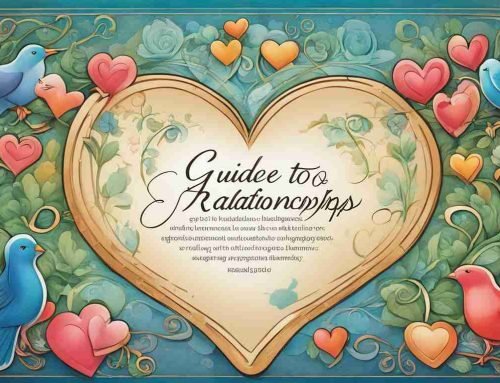Human connections are at the core of our existence. We crave emotional bonding, building strong emotional ties, and fostering deep emotional connections. Life is more fulfilling when we have people to share our joys, sorrows, and challenges with. However, many of us struggle to connect with others on a deeper emotional level.
Enhancing emotional connection is the key to transforming relationships and enriching our lives. It allows us to nurture emotional connection, strengthen emotional bond, cultivate emotional closeness, and enhance emotional attachment. By deepening emotional connection, we can improve emotional intimacy and live a more fulfilling life.
Key Takeaways:
- Enhancing emotional connection is essential for transforming relationships and enriching our lives.
- Emotional bonding and building strong emotional ties form the foundation for healthy and fulfilling relationships.
- The benefits of enhancing emotional connection include improved emotional intimacy and a more fulfilling life.
- Nurturing emotional connection requires practical strategies, effective communication, building trust and vulnerability, emotional intelligence, and empathy and compassion.
- Small actions in everyday life can help strengthen emotional bonds and foster deeper connections.
Understanding Emotional Connection
Emotional connection forms the foundation of healthy and fulfilling relationships. It is the bond that ties individuals together, fostering deep emotional ties and building strong emotional bonds. Enhancing emotional connection has the power to transform relationships and enrich our lives.
At its core, emotional bonding is the process of forming an attachment to someone else. This attachment is based on a sense of security, trust, and mutual respect. When individuals share their emotions and experiences with each other, they feel a sense of closeness and belonging. This is the essence of emotional connection – a feeling of deep understanding and empathy.
Building strong emotional bonds takes time and effort, but the rewards are immeasurable. When individuals are emotionally connected, they are able to communicate more effectively, resolve conflicts more easily, and support each other through difficult times. They feel a sense of belonging and purpose, which enhances their overall well-being.
The Benefits of Enhancing Emotional Connection
Enhancing emotional connection can bring a wide range of benefits to our relationships and our lives as a whole. By fostering deep emotional connections, we can improve emotional intimacy, build stronger bonds, and feel more fulfilled in our relationships. Let’s take a closer look at some of the key benefits of enhancing emotional connection:
- Fostering deep emotional connections: By enhancing emotional connection, we can develop deeper emotional bonds with others. This can help us feel more supported, understood, and cared for, creating a sense of security and closeness in our relationships.
- Improving emotional intimacy: Emotional intimacy is the ability to connect with others on a deep emotional level. By enhancing emotional connection, we can improve emotional intimacy, allowing us to feel more connected and in tune with our partners, friends, and family members.
- Strengthening relationships: Building strong emotional ties is essential for developing healthy, fulfilling relationships. When we enhance emotional connection, we are better able to maintain strong, supportive relationships that can withstand difficult times.
- Fostering a sense of purpose: Enhancing emotional connection can help us feel more fulfilled and satisfied in our relationships, providing a sense of purpose and meaning in our lives.
- Encouraging personal growth: By enhancing emotional connection, we can learn more about ourselves and others. This can lead to personal growth and self-awareness, enabling us to become more empathetic, compassionate, and understanding individuals.
Overall, enhancing emotional connection can bring a multitude of benefits to our lives, from improving our relationships to fostering personal growth and fulfillment. By nurturing emotional connection with others, we can deepen our connections and create more meaningful, satisfying relationships.
Strategies for Nurturing Emotional Connection
Enhancing emotional connection is crucial for building healthy and fulfilling relationships. To strengthen the emotional bond between individuals, it is essential to nurture emotional connection through practical strategies. Here are some actionable tips and advice on how to nurture emotional connection:
1. Practice Active Listening
Active listening is a crucial component of building emotional connections. Pay attention to what your partner is saying, and respond thoughtfully. Validate their feelings and emotions by repeating what they have said in your own words, and ask clarifying questions.
2. Schedule Quality Time Together
Make time in your busy schedule to spend quality time with your partner. It doesn’t have to be extravagant or expensive, but it should be focused on each other. Whether it’s a date night, a weekend away, or just a walk in the park, make time for each other.
3. Express Gratitude and Appreciation
Expressing gratitude and appreciation for your partner can go a long way in nurturing emotional connection. Acknowledge and appreciate the small things they do, and express how much they mean to you. This can help build a foundation of trust and emotional intimacy.
4. Share Experiences and Emotions
Sharing experiences and emotions can deepen emotional connection. Be vulnerable with your partner and share your thoughts and feelings. This can help build a sense of understanding and empathy, and create a safe space for emotional expression.
Nurturing emotional connection takes effort and commitment, but the rewards are worth it. By implementing these strategies, you can strengthen your emotional bond and foster deeper connections.
The Role of Communication in Emotional Connection
Effective communication is essential for cultivating emotional closeness and enhancing emotional attachment. Good communication involves not only speaking and expressing oneself but also listening and understanding others. When we communicate effectively, we create a safe space for vulnerability and build trust, which is vital for deepening emotional connection.
One way to improve communication within relationships is to practice active listening. This involves focusing on what the other person is saying and avoiding distractions and interruptions. By actively listening, we show empathy and understanding, which can foster emotional intimacy and strengthen emotional bonds.
Another communication technique is to use “I” statements instead of “you” statements. “I” statements allow us to express our thoughts and emotions without blaming or accusing the other person. For example, instead of saying “You never listen to me,” we can say “I feel unheard when I share my thoughts with you.” This approach can reduce defensiveness and increase the likelihood of a productive conversation.
Building Trust and Vulnerability
To deepen emotional connections, it’s important to establish trust and vulnerability. Building trust involves being reliable, honest, and respectful in your interactions. When you consistently behave in a trustworthy manner, people will feel safe sharing their thoughts and feelings with you. Vulnerability, on the other hand, involves being open and honest about your own thoughts and feelings. This can be scary, but it’s important to create a safe space for others to do the same.
It’s important to note that vulnerability doesn’t mean being weak or helpless. In fact, being vulnerable can be a sign of strength and courage. When you’re willing to be vulnerable, you’re showing that you trust the other person enough to share your innermost thoughts and feelings. This can create a deeper connection between you and the other person.
The Importance of Boundaries
While it’s important to be open and vulnerable, it’s equally important to set boundaries. Boundaries are essential for maintaining healthy relationships and protecting yourself from harm. When you set healthy boundaries, you’re communicating your needs and expectations clearly, which can prevent misunderstandings and resentment down the line.
Setting boundaries can be difficult, but it’s important to remember that you deserve to feel safe and respected in your relationships. Communicate your boundaries clearly and respectfully, and be willing to listen to the other person’s boundaries as well. When both parties are willing to respect each other’s boundaries, the relationship can deepen and grow.
The Power of Vulnerability
Vulnerability can be intimidating, but it’s a powerful tool for deepening emotional connection. When you’re willing to be vulnerable, you’re inviting the other person to see the real you – flaws and all. This can be scary, but it can also be incredibly liberating.
When you’re vulnerable with someone, you’re showing that you trust them with your feelings and emotions. This can be a powerful bonding experience, as it creates a sense of intimacy and connection. When you’re both willing to be vulnerable with each other, you create a safe space for honesty and openness, which can lead to deeper emotional connections.
The Power of Emotional Intelligence
Enhancing emotional connection and improving emotional intimacy requires a deep understanding of emotions. Emotional intelligence is the ability to recognize and manage emotions effectively, both in yourself and in others. Developing emotional intelligence can help you create stronger relationships by increasing your empathy, communication skills, and ability to resolve conflicts.
One way to improve your emotional intelligence is to practice mindfulness. Mindfulness is the practice of being present in the moment, without judgment or distraction. By focusing on the present, you can increase your awareness of your own emotions and those of others, allowing you to respond more effectively to them.
Another important aspect of emotional intelligence is self-reflection. Taking the time to reflect on your emotions and the impact they have on your relationships can help you understand your own needs and those of your partner. This can lead to more open and honest communication and a deeper emotional connection.
Overall, emotional intelligence is a powerful tool for enhancing emotional connection and improving emotional intimacy. By developing your emotional intelligence, you can create stronger, more fulfilling relationships and lead a more enriched life.
Overcoming Barriers to Emotional Connection
Building and maintaining deep emotional connections is crucial for a fulfilling and happy life. However, there are common barriers that can hinder our ability to foster deep emotional connections. The good news is that these barriers can be overcome, and doing so can lead to improving emotional intimacy and fostering deeper connections. Here are some strategies to help overcome common barriers:
Identify Your Emotional Blocks
In order to overcome emotional barriers, it’s important to first identify them. We all have emotional blocks that prevent us from being vulnerable or giving ourselves fully to our relationships. Take some time to reflect on your emotional blocks and consider the underlying sources. Are you afraid of rejection or abandonment? Do you struggle with trust issues? Identifying these blocks can help you work towards overcoming them.
Practice Empathy and Active Listening
One of the biggest barriers to emotional connection is a lack of empathy and active listening. To overcome this barrier, practice empathizing with others and actively listening to what they have to say. This means putting yourself in their shoes and truly understanding their perspective. When you listen actively, you demonstrate that you value the other person’s emotions, thoughts, and experiences.
Work on Communication Skills
Poor communication skills can also be a barrier to emotional connection. If you struggle with communication, take steps to improve your skills. This may include learning to express yourself more effectively, practicing active listening, and finding ways to communicate openly and honestly with your loved ones.
Develop Emotional Intelligence
Emotional intelligence is the ability to understand and manage your own emotions and the emotions of others. Developing emotional intelligence can help you overcome barriers to emotional connection by allowing you to better understand and empathize with others. To develop your emotional intelligence, practice mindfulness, self-reflection, and empathy.
By taking steps to overcome these barriers to emotional connection, you can foster deeper connections with your loved ones and improve emotional intimacy in your relationships. Remember that it takes time and effort to build strong emotional bonds, but the rewards are well worth it.
The Role of Empathy and Compassion
Cultivating emotional closeness and enhancing emotional attachment requires a deep understanding of the emotions and feelings of those around us. Empathy and compassion are crucial in establishing a connection based on mutual understanding and respect.
Empathy involves putting yourself in someone else’s shoes and experiencing the world through their perspective. By doing so, you gain a better understanding of their emotions, thoughts, and feelings. Showing empathy can help to validate their experiences and build trust and respect.
Compassion is closely related to empathy and involves feeling empathy for someone’s situation and having a desire to help them. It involves taking action to relieve their suffering and provide comfort and support. When compassion is combined with empathy, it can deepen emotional connection and create a strong bond.
To cultivate empathy and compassion, it’s important to actively listen to others and pay attention to their nonverbal cues. Try to understand their experiences without judgment or criticism. Show your support by offering words of encouragement or gestures of kindness and compassion.
Remember that emotional connection is a two-way street. By showing empathy and compassion towards others, you can also encourage them to reciprocate and deepen the emotional connection with you. By cultivating empathy and compassion, you can enhance emotional attachment and establish strong emotional bonds that last a lifetime.
Practicing Emotional Connection in Everyday Life
Enhancing emotional connection requires consistent effort and intentional actions. Fortunately, there are simple steps you can take to nurture your emotional connection with loved ones. Here are some practical tips:
- Express gratitude: Make it a habit to express gratitude to your partner, family, and friends. This can be a simple “thank you” or a heartfelt note. It will show them that you appreciate them and strengthen your bond.
- Listen actively: Listen actively to your loved ones when they speak. Put aside distractions and be fully present. This will help you understand their thoughts and feelings better, and show them that you value what they have to say.
- Share your feelings: Share your feelings with your loved ones. Be vulnerable and honest about how you feel. This will help build trust and intimacy in your relationships.
- Engage in meaningful activities: Engage in meaningful activities together, such as cooking, hiking, or volunteering. This will create shared experiences and memories, and deepen your emotional connection.
- Give your undivided attention: When spending time with your loved ones, give them your undivided attention. Avoid checking your phone or multitasking. This will show them that you value their time and strengthen your emotional bond.
- Create a safe space: Create a safe space where you and your loved ones can share your thoughts and feelings without fear of judgment. This will foster deeper emotional connections and improve communication.
- Practice forgiveness: Practice forgiveness and let go of grudges. Holding onto resentment can damage relationships and hinder emotional connection. Forgiveness can help heal wounds and strengthen your bond.
- Be supportive: Be supportive of your loved ones during both good and challenging times. Show empathy and compassion, and offer help and encouragement. This will strengthen your emotional bond and build trust.
- Be present: Be present in the moment and cherish the time you spend with your loved ones. Show them that they are a priority in your life and that you value your relationship.
By incorporating these practices into your everyday life, you can nurture and strengthen your emotional connection with loved ones. Remember, developing and maintaining emotional connection requires consistent effort and intentional actions, but the rewards are immeasurable.
Conclusion
Enhancing emotional connection is one of the most fulfilling journeys you can embark on in your relationships. By building a stronger emotional bond, you can transform your relationships and enrich your life in countless ways.
Throughout this article, we have explored the importance of emotional connection, the benefits of nurturing it, and practical strategies for deepening it in your relationships. We have highlighted the role of effective communication, trust, vulnerability, emotional intelligence, empathy, and compassion in fostering deeper connections.
Remember, enhancing emotional connection is not a one-time event, but rather an ongoing process that requires effort and commitment. But the rewards are immeasurable. By practicing emotional connection in everyday life, you can strengthen your emotional bond with your loved ones, improve your emotional intimacy, and create a more fulfilling and satisfying life.
So, take action today towards enhancing emotional connection in your relationships. Be intentional about building stronger emotional ties, nurturing emotional connection, and deepening your emotional bond. You will be amazed at the transformation that can happen when you unlock the power of emotional connection.
Remember:
Enhancing emotional connection is key to building fulfilling relationships and enriching our lives. By adopting the strategies and tips discussed in this article, you can take the necessary steps towards nurturing and deepening your emotional connections. So, make it a priority today to enhance emotional connection in your relationships, and experience the transformational power it can bring.
FAQ
Q: What is emotional connection?
A: Emotional connection refers to the bond and intimacy that individuals feel towards each other. It is a deep and meaningful connection that goes beyond surface-level interactions.
Q: Why is enhancing emotional connection important?
A: Enhancing emotional connection is important because it helps in building strong and fulfilling relationships. It fosters deep emotional connections and improves emotional intimacy, leading to a more satisfying and enriched life.
Q: How can I strengthen my emotional bond with someone?
A: To strengthen your emotional bond with someone, you can practice active listening, show empathy and understanding, spend quality time together, and openly communicate your feelings and emotions.
Q: What role does communication play in emotional connection?
A: Communication is crucial in cultivating emotional closeness and enhancing emotional attachment. Effective communication techniques, such as active listening and expressing emotions openly, can help in improving emotional connection within relationships.
Q: How can I overcome barriers to emotional connection?
A: To overcome barriers to emotional connection, it is important to address any unresolved conflicts, practice vulnerability, and work on building trust within the relationship. Seeking couples therapy or counseling can also be helpful in navigating these barriers.
Q: What is the role of empathy and compassion in emotional connection?
A: Empathy and compassion play a vital role in cultivating emotional closeness and enhancing emotional attachment. Understanding and empathizing with others’ emotions can strengthen the emotional bond and create a deeper connection.
Q: How can I practice emotional connection in everyday life?
A: You can practice emotional connection in everyday life by showing appreciation and gratitude, performing small acts of kindness, being present and attentive, and engaging in activities that promote shared experiences.





